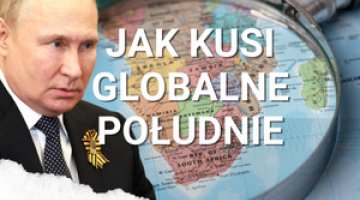The Olympics in Sochi: costs are rising, preparations floundering
On 6-7 February – exactly one year before the Winter Olympics start in Sochi – President Vladimir Putin visited the city and inspected the Olympic venues construction. The president sharply criticised the state of preparations, and ordered the sacking of Ahmed Bilalov, the deputy head of the Russian Olympic Committee.
Commentary
- The Games in Sochi have an essential dimension of prestige for Russia, as emphasised in the promotion campaign, which is designed to boost the country's image as a superpower. At the same time it is a personal project for Vladimir Putin, who has invested much political capital in his efforts to win the Games for Russia. The arbitrary dimension of this project is underlined by the fact that the city chosen for the Winter Olympics is located in the subtropical climate zone. Sochi was most likely chosen because it is one of the President’s favourite destinations (one of his main residences is located there, and he also regularly goes skiing in the nearby resort of Krasnaya Polyana).
- Many aspects of the Games’ organisation have proved controversial with the public. In addition to the location, there are the questions of how these flashy new facilities will be used after the Olympics are over, and especially about the rising costs of the preparations. Since the initial announcement, these costs have soared from an estimated 206 billion roubles (about US$6.8 billion) to 1.5 trillion roubles (US$50 billion). The Sochi Olympics are already being estimated as the most expensive in history – for comparison, the previous Winter Olympics in Vancouver cost US$2 billion, the Summer Olympics in London cost US$15 billion, and those in Beijing about US$44 billion. The Russian media have reported that the lucrative contracts for constructing the Olympic facilities have been given to companies controlled by influential members of Putin’s elite, including Gennady Timchenko and Oleg Deripaska.
- Despite huge expenditure, there have been great delays in constructing the facilities, as noted by the Audit Chamber, and most recently by the President himself. Observers have also criticised the state of the infrastructure in Sochi itself. In this context, Bilalov’s firing can be seen as an exemplary penalty for negligence and an attempt to personalise responsibility. Most commentators consider the main problem for the Olympic Games in Sochi to be the unprecedented corruption, which is making it difficult to implement this prestigious project. Official data on the subject is scarce; state auditors have indicated financial violations amounting to 30 billion roubles (US$1 billion). However, indirect confirmation of these suspicions of corruption may be found in the disproportionately high expenditure on the Games, as well as the frequent replacements of the directors (four since 2007) of the state corporation Olimpstroy which is coordinating the preparations.
- The Games in Sochi may suffer the same fate of another prestigious Russian project – the APEC summit, which took place in September 2012 in Vladivostok. During the preparations, costs rose to US$10 billion, experts criticised the inflated building costs (which were much higher than those of foreign counterparts), and residents of Vladivostok and the media reported the appalling quality of the infrastructure constructed. Since the summit, several criminal cases for embezzlement of funds have been brought in which the defendants are state officials.





